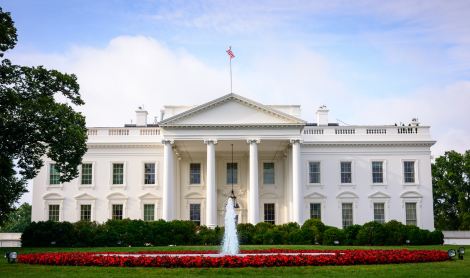Cross-Posted from the Fordham Institute’s “Choice Words” blog.
Last week, the National Association of Charter School Authorizers (NACSA) launched “One Million Lives,” a multi-pronged campaign to provide better schools to one million children by closing failing charter schools and opening many more good ones.
It might seem odd that an organization that supports charter schools would call for the closure of hundreds of them. But it’s not. It makes perfect sense.
At the heart of the charter school concept is a bargain between schools and the entities that authorize them. Charter schools agree to accept greater accountability, including the possibility of closure, in exchange for greater freedom from bureaucratic rules that can inhibit effective teaching and learning. Charters receive autonomy over inputs in exchange for accountability for outcomes.
The surest way to cripple the charter movement is to let failing charter schools continue to operate.
The possibility of closure is essential to making the charter school bargain work. It is not a coincidence that where charters are working well, the threat of closure is real—and that where they are not, closure is rare. If closure isn’t a real possibility, the charter bargain is out of balance. When the link between autonomy and accountability is broken, quality suffers.
Charter schools are growing rapidly. This rapid growth is powerful evidence that when empowered with school choice, parents will seek out better options for their children. And despite a small but vocal chorus of detractors, charter schools also enjoy broad public support and are one of the very few issues in our otherwise divided political discourse where there is true bipartisan agreement.
The surest way to slow this growth and undermine this support—the surest way to cripple the movement—is to let failing charter schools continue to operate.
Tolerance for failure begets more failure, and allowing failing charter schools to remain open has far-reaching consequences, both for the students who attend them and beyond. It harms all those charters that are successful and strengthens the resolve of those who seek to impede their progress. It makes it harder for more promising new schools to open their doors and perpetuates the myth that great charters are exceptions to the rule instead of models to be replicated. It lets failing district schools off the hook and emboldens those who claim that school choice is about choice for its own sake and not a means to quality and equity for all.
Of course, there are already hundreds of charter schools that are successful, and we should do everything we can to replicate and expand them and accelerate our efforts to create thousands more. In many of our country’s most disadvantaged and troubled communities, charters are demonstrating that while poverty and instability create very real and often enormous obstacles to learning, when given autonomy over inputs and when held accountable for outcomes, schools can overcome them and help even the most disadvantaged children succeed.
As much as the opponents of charter schools would have you believe otherwise, there is abundant evidence that low-income students, who for generations have been failed by centralized, one-size-fits-all industrial-era schools, can thrive in autonomous, accountable schools of choice. You wouldn’t know it from the way the research is portrayed in the media or by their critics, but charter schools are outperforming their district peers when it comes to educating America’s most disadvantaged students. Every day, all across the country, hundreds of these schools are changing the life trajectories of tens of thousands of students by giving them the quality educational opportunities they need and deserve.
While this success is encouraging, and while we need to do much more to replicate and expand successful schools, there is also abundant evidence that far too many charter schools are failing.
Far too many charters are doing no better than the schools their students chose to leave, and are failing to educate their students well. Out of the more than 5,600 charter schools nationwide, NACSA estimates that between 900 and 1,300 of them are performing in the bottom 15 percent of schools in their states, as measured by those states’ accountability systems. Of the more than two million charter school students, as many as 300,000 students attend charters that are failing to meet their needs and failing to prepare them for success in college and careers.
This sad reality is why NACSA launched “One Million Lives.” For too long, many charter school advocates have focused on growth over quality, and for too long, many charter authorizers and state policymakers have failed to take action to close failing schools.
The time for change is now. As the nation’s preeminent voice for charter school quality, NACSA knows that the continued success of the charter school movement depends on its ability to increase quality dramatically across the sector by closing hundreds of failing charters and replacing them with twice as many excellent ones.
If charter schools are truly about changing lives for the better, if they are truly about transforming public education so that it serves the individual needs of all students, including those children our traditional schools have perpetually failed, and if we are serious about giving schools the autonomy they need to succeed and holding them accountable for results, we cannot allow failing charter schools to continue failing kids.


